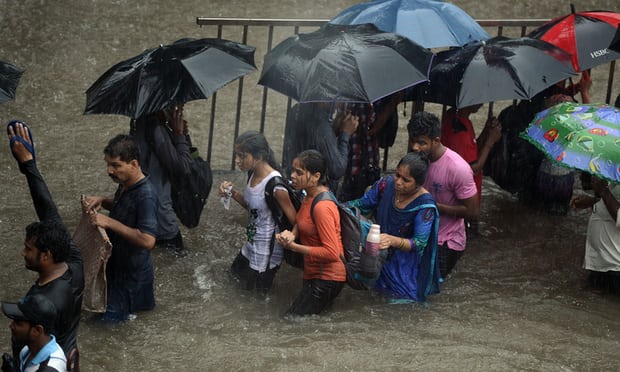News & Updates
APEC accelerates early warning systems after the record breaking disasters of 2017
06 March 2018

APEC member economies are fast-tracking the development of digital safeguards in the areas of the Asia-Pacific region that are notably vulnerable to natural disasters. Emergency management officials from APEC hope that this will boost vulnerable communities and livelihoods.
2017 was a year marked by an unusually high and severe number of natural disasters; with Asia experiencing a vast number of these.
South Asia experienced its worst flooding for a decade in the summer of 2017, killing over 1,400 people in India, Nepal and Bangladesh and affecting a further 41 million. The flooding exacerbated the refugee crisis in Myanmar as thousands fled into a flooded Bangladesh.
Typhoons also hit the Philippines and Vietnam in December 2017, over 230 people were killed in the Philippines as a result of flooding and mudslides and Vietnam were prepared to move 1 million people out of the typhoon’s path.
The region has also experienced a number of earthquakes and volcanic eruptions with Indonesia, the Philippines and Taiwan all experiencing these recently.
APEC’s acceleration of their disaster early warning systems comes soon after the 7.5 magnitude earthquake in Papua New Guinea.
The earthquake in Papua New Guinea has killed 67 people, with a further 500 people injured and 127,000 people in need of immediate aid such as food, water, shelter and healthcare
Ruel Yamuna, Managing Director of Papua New Guinea’s Climate Change and Development Authority said:
“As we have seen in the highlands of Papua New Guinea and in disaster zones around the Pacific, this is a life or death effort, and there are very big implications for business and the communities they support…by raising our preparedness, we seek to limit crisis fallout so affected people can continue to provide for their families and to speed recovery.”
APEC economies experience a higher than normal level of seismic activity alongside extreme weather.
The focus for the region is to build on technical knowledge and resource capacity of governments and the private sector to improve the monitoring of hazards and provide efficient and accurate alerts in the event of a disaster.
Dr Li Wei-sen, Chair of the APEC Emergency Preparedness Working Group added:
“Precise, real time updates about the status of an active volcano, earthquake and tsunami potential or, increasingly, threatening weather patterns are key to effective response planning and risk reduction,”
“We are optimizing the delivery of disaster information in APEC by facilitating technology application and investment, including mobile network and app development, and linking our monitoring and notification mechanism”